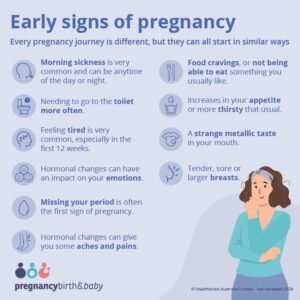A Guide to Abortion Pills:
What You Need to Know A Guide to Abortion Pills: Abortion is a deeply personal decision and a complex issue that often involves emotional, medical, and legal considerations. For some, the option of using abortion pills, also known as medical abortion, provides a way to end a pregnancy in a private and less invasive manner. However, it’s essential to understand how abortion pills work, their legality, and the risks involved, especially in places where abortion laws may be more restrictive.
What Are Abortion Pills?
Abortion pills refer to a combination of two medications, mifepristone and misoprostol, that are used to terminate an early pregnancy (typically up to 10 weeks). These pills work in stages to effectively end the pregnancy:
- Mifepristone: This first pill is taken orally and blocks the hormone progesterone, which is necessary for the pregnancy to continue.
- Misoprostol: Taken 24 to 48 hours later, misoprostol causes the uterus to contract and expel the pregnancy tissue.
This method is considered safe and effective when used as directed by a healthcare provider, and it’s an option for women who choose to end a pregnancy early on.
How Do Abortion Pills Work?
After taking mifepristone, the body begins to prepare for the expulsion of the pregnancy tissue. The second pill, misoprostol, causes cramping, bleeding, and the eventual passing of the pregnancy. The process usually takes a few hours to a few days, and bleeding can be heavy, similar to a miscarriage.
Legal Considerations and Accessibility
The legality of abortion pills varies dramatically depending on the country or region. In many places, including parts of Europe and North America, abortion pills are available with a prescription and can be obtained through a healthcare provider or clinic. However, in countries where abortion laws are more restrictive, access to these pills may be limited, and using them without proper medical supervision could be illegal and dangerous.
A Guide to Abortion Pills For example, in Saudi Arabia and some other countries with strict abortion laws, obtaining and using abortion pills outside of a medically approved situation is illegal and could result in serious legal consequences. Women in such regions may face significant barriers to accessing abortion care, and alternative options might need to be explored.
Risks and Side Effects

While abortion pills are generally safe when used under the guidance of a healthcare professional, there are potential risks and side effects. Some common side effects include:
- Heavy bleeding and cramping: This is a normal part of the process but can be intense for some individuals.
- Nausea, vomiting, diarrhea: These can occur due to the medications.
- Infection: There is a slight risk of infection if the process is incomplete or if proper aftercare isn’t followed.
- Incomplete abortion: In some cases, the pills may not fully expel the pregnancy, and surgical intervention might be required.
It’s important to have access to a healthcare provider during this process to ensure safety and proper follow-up care.
Seeking Professional Guidance
If you’re considering abortion pills, it’s crucial to consult with a healthcare professional who can help guide you through the process, provide appropriate medical care, and ensure that you are following the legal framework in your region. Many countries with more accessible abortion services also offer telemedicine consultations, where a licensed doctor can evaluate your eligibility for a medical abortion and prescribe the pills if appropriate.
For women in countries with strict abortion laws, seeking information from trusted healthcare organizations, family planning clinics, or support groups can provide valuable resources to help navigate the process and understand the available options.
Emotional and Psychological Impact
The decision to terminate a pregnancy, whether through pills or surgery, is often accompanied by a range of emotions. It’s common for individuals to experience feelings of relief, sadness, guilt, or confusion after an abortion. It’s essential to have a strong support system and access to counseling or therapy if needed. Many organizations provide confidential support services to help women process their emotions and ensure they have the necessary mental health support.
Conclusion
A Guide to Abortion Pills
Abortion pills offer a non-invasive option for women in the early stages of pregnancy. However, their use must be approached with careful consideration, understanding of the legal implications, and awareness of the potential risks and side effects. No matter the reason for seeking an abortion, it’s essential to prioritize your health, seek professional guidance, and ensure that you have access to the resources and support you need. A Guide to Abortion Pills
If you’re facing a decision about abortion, remember that you’re not alone. Reach out to a trusted healthcare provider to discuss your options and make an informed choice that’s right for you. A Guide to Abortion Pills